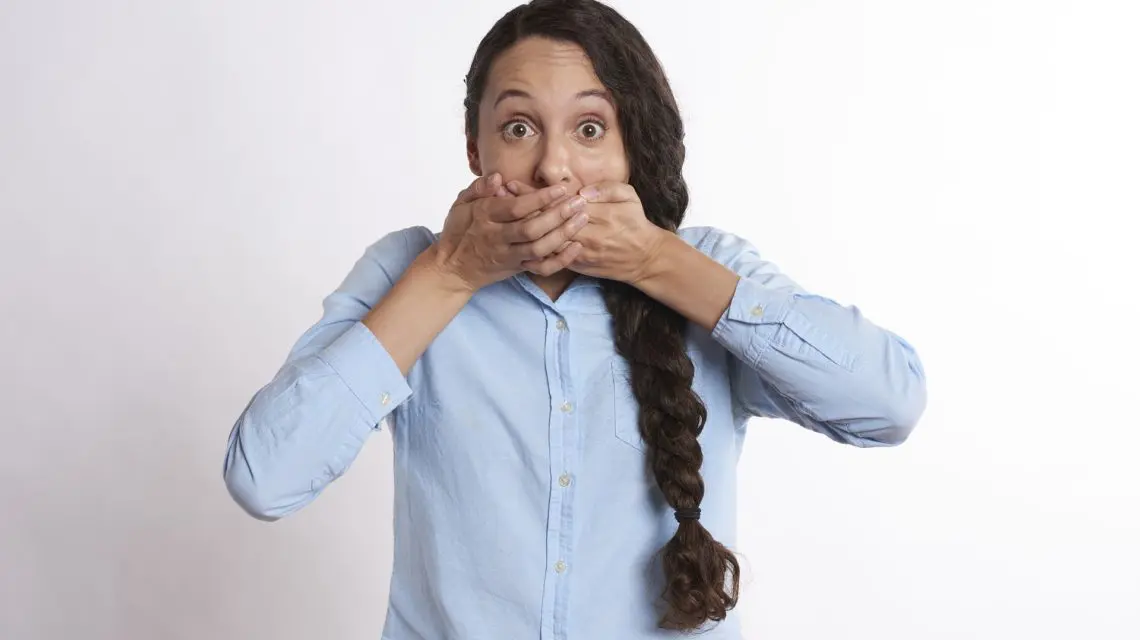How do you kill bacteria in your mouth that cause bad breath? A case of bad breath can be mortifying, especially when it’s chronic. But bad breath, also known as halitosis is extremely common.
The reality is, everyone suffers from bad breath at some point in the day. This is simply because the environment in our mouths is constantly changing. Bacteria thrive in this environment, and produce a bad odor as they break down sugar and starch. The worse your oral hygiene habits, the more bacteria can build up, leading to chronic bad breath.
That brings us to the million-dollar question: How can you get rid of bad breath before it becomes an embarrassing social issue? The simple answer is to kill bacteria in your mouth before it becomes a greater problem. Let’s explore what can cause bad breath, and how you can kill mouth bacteria naturally to stop it.
What Causes Bad Breath?
Researchers estimate that around 80 million Americans suffer from halitosis, or bad breath. That’s about 1 in 4 Americans. The reason bad breath is so common is that the mouth is a prime environment for bacteria to grow.
As you go throughout your day eating, drinking, and breathing, the oral cavity is alive and active. Saliva helps soften food and clean the oral cavity, then enzymes start the digestive process. Bacteria build up as a result of the initial digestive process.
The primary cause of bad breath is a buildup of bacteria that releases noxious odors or gasses. Oral diseases caused by excessive bacteria buildup, such as gum disease or untreated cavities, can also lead to chronic bad breath.
Studies suggest that 80% of bad breath comes from problems with oral hygiene and dental health. So simply keeping the mouth clean should help get rid of bacteria in the mouth, and produce better-smelling breath. But other causes of bad breath can include acid reflux or issues arising in the stomach. Internal medical conditions, such as diabetes, liver disease, respiratory tract infections, and chronic bronchitis can also affect bad breath.
How to Kill Bacteria in Your Mouth: Five Ways to Stop Bad Breath in its Tracks
1. Brush Twice a Day and Floss Once
Brushing twice daily and flossing once every day is the gold standard for preventing any type of unwanted oral condition or disease. That’s because brushing and flossing remove food debris and plaque before they can begin damaging the teeth and gums. Practicing good oral hygiene is the most effective natural way to get rid of bacteria in your mouth.
And as we mentioned above, harmful bacteria produced through eating, especially from sugary and starchy foods, are the primary source of bad breath. If you are among those who struggle with chronic halitosis, try brushing 20 minutes after every meal and use toothpaste that contains baking soda to effectively kill mouth bacteria.
2. Brush or Scrape Your Tongue
Ridding the mouth of odor-causing bacteria often requires addressing the tongue as well as your teeth and gums. The tongue can be a breeding ground for these unwanted, microscopic organisms that cover the surface of the tongue. And over time, bacteria and food debris buildup can result in a white coating on the tongue.
To get rid of more bacteria in your mouth and stop bad breath, try gently scraping or brushing your tongue after you brush your teeth, or in between meals.
3. Hydrate Regularly
Many Americans don’t drink enough water to stay sufficiently hydrated throughout the day. Drinking enough water is crucial in maintaining good overall health, but a dry mouth is also more prone to bad breath. That’s because water is an essential ingredient to healthy saliva production, which naturally rids your mouth of bacteria. Drinking water also helps to flush leftover food debris and bacteria from the mouth, so it helps to drink a glass of water after meals.
4. Chew on a Piece of Xylitol Gum
Did you know that chewing gum can be good for you? However, it must be sugar-free, otherwise it will just do more harm. But when choosing sugar-free gum, make sure it contains xylitol. Chewing mint-flavored xylitol gum has the benefit of a minty-fresh smell and can also reduce the presence of harmful bacteria in the mouth.
Xylitol is a naturally occurring sugar that, unlike other sugars, is indigestible by bacteria. Most sugars break down and feed harmful bacteria. Those bacteria then produce acids that eat away at tooth enamel.
Chewing xylitol gum that does not feed bacteria means fewer mouth bacteria, and as a result, a more balanced PH, healthier teeth, and fresher-smelling breath.
5. Visit The Dentist Twice a Year
No matter how well you take care of your teeth, you still need regular visits to the dentist. Even if you have good oral hygiene and healthy gums and teeth, you should be visiting the dentist at least twice a year.
These routine visits not only give your teeth a professional cleaning that will leave your smile bright and healthy, but they are also an opportunity for your dentist to check for any possible developments of oral infection or disease. If you have great oral health and you’re still suffering from bad breath, your dentist can help you identify other possible sources that could be causing your halitosis.
Family Dentist in Flagstaff, Arizona
If you live in Flagstaff Arizona and you’re struggling with chronic halitosis or have more questions about how to stop bad breath, schedule an appointment with us today. At Country Club Dental our team is dedicated to providing you with services that result in a smile you can be proud of.
Images used under creative commons license – commercial use. Image by Robin Higgins from Pixabay (4/26/2019)


